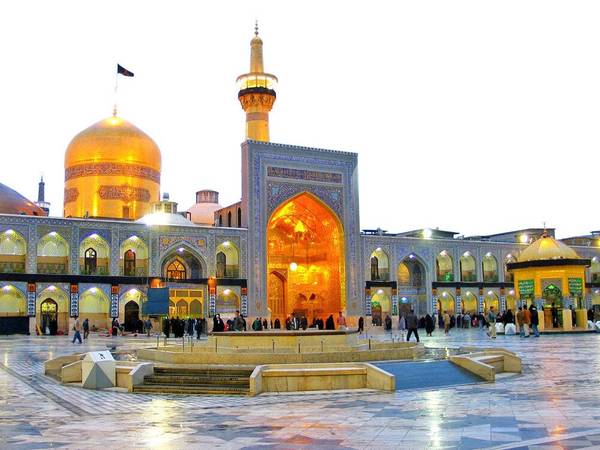The US Treasury Department published guidance on Thursday concerning the impact of US sanctions on US persons visiting or making donations to the Imam Reza Holy Shrine in Mashhad, Iran.
During the Trump administration, the US government sanctioned Astan Quds Razavi, which manages the Imam Reza Holy Shrine and is a powerful religious foundation. Iran’s President Ebrahim Raisi is a former head of Astan Quds Razavi himself, and it controls vast holdings across Iran’s economy. Astan Quds Razavi was sanctioned under Executive Order 13876 for being owned or controlled, directly or indirectly, by Iran’s Supreme Leader. In the same designation, Raisi’s successor as custodian, Ahmad Marvi, was also sanctioned.
Thursday’s Frequently Asked Questions (FAQ) guidance cited US State Department’s travel advisory to Iran, warning against any visits by US persons given the risk of kidnapping, arbitrary arrest, and detention. But the FAQ clarified that for those who travel, transactions exempt from US sanctions include religious pilgrimages and the purchasing of goods and services for personal use.
The FAQ goes on to note that “donations of articles, such as food, clothing, and medicine, by US persons to the Imam Reza Holy Shrine intended to be used to alleviate human suffering also fall within an exemption and therefore generally are not prohibited under the Iran Transactions and Sanctions Regulations.” However, the FAQ warns certain transactions outside the scope of these regulations concerning Astan Quds Razavi may be prohibited by the sanctions.
The FAQ’s reference to the sanctions levied against Astan Quds Razavi and Executive Order 13876 is noteworthy as the US Treasury Department is essentially highlighting the fact that these sanctions remain on the books, despite demands by Iran’s government during the Vienna nuclear negotiations for Washington to lift all the sanctions imposed by former President Donald Trump, including Executive Order 13876 targeting the Office of Iran’s Supreme Leader. At the same time, the Biden administration is seeking to underscore that there are humanitarian exemptions embedded in the US sanctions architecture.
